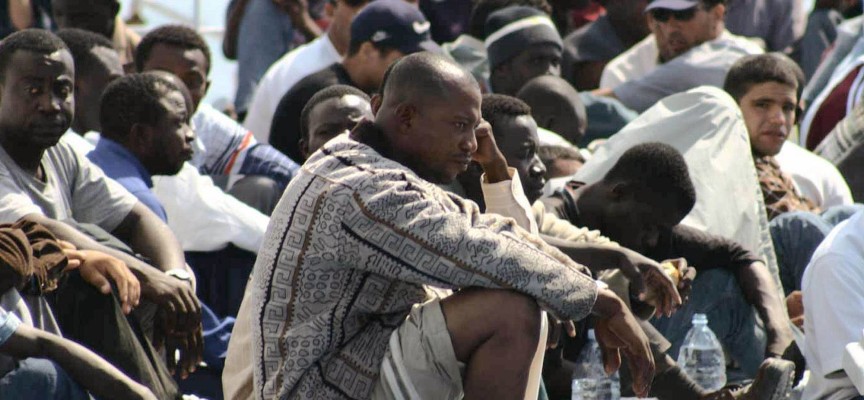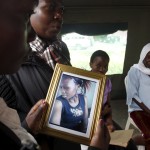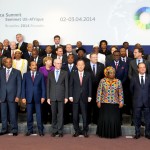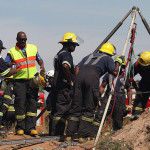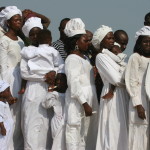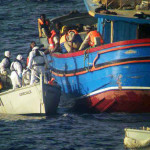To control migratory flows pouring out of depressed areas and on to Europe, “raising a wall is not enough, nor is cooperation: a long-term strategy is needed”, combining cooperation with troubled countries with the rebuilding of countries “on the verge of total collapse”. These are the words with which the Italian Minister of Foreign Affairs, Paolo Gentiloni, saluted the launch of the Khartoum Process on immigration from Eastern Africa (the so-called EU-Horn of Africa Migration Route Initiative), at the end of the inter-ministerial conference held in Rome on November 28th. On that occasion, a Joint Statement was signed by the 37 attending Ministers on behalf of the 28 EU member states plus Egypt, Eritrea, Ethiopia, Djibouti, Kenya, Somalia, Sudan, South Sudan and Tunisia. A might absentee was Libya, in the grips of civil war.
Many critical voices were raised against the initiative, especially against the option (contemplated by the final statement) to open refugee camps in the continent, in partnership with the African countries.
Critical voices that we support, although we still believe that the Khartoum Process should be given a chance. Because one cannot deny that there’s something good in putting – just for once – the governments of the two sides of the Mediterranean Sea sitting together around a table. Even if, at that table, there were (as there are) regimes that violate human rights: talking does not necessarily mean excusing.
For years, the European Union has been asked to involve the African countries in the management of its migratory flows. A position that was also reiterated at the EU-Africa summit in Brussels, last April. So, any potential opportunity to talk is welcome, on condition it is a sincere, honest, non-hypocritical talk.
That’s why the Khartoum Process cannot take all the credit. Especially if there are, in front of you, regimes that have seriously violated human rights: let’s mention Eritrea (which the United Nations themselves are investigating) or even the Sudan of president al-Bashir, who committed brutal crimes in Darfur and on the Nuba Mountains, or the far from democratic new South Sudanese leadership. In this respect, the stance taken by Pistelli – Italian Deputy Minister of Foreign Affairs and one of the main authors of the Rome meeting – has been clear for a long time now. In an interview a few months ago, speaking of Eritrea, he explained: “A very closed regime will not change if you just leave it out. This has already been going on for 20 years. So, I insist, the political world has the duty, not to go on its knees knocking on anyone’s door, but to go and speak and explain its position and try to change the other’s one”.
A position very heavily affected by the Libyan precedent and the hundreds of stories of migrants trapped, abducted and resold, with the help of the police of Gaddafi’s regime back then, or the stories of migrants abducted by raiders in the Sinai. All, under the eyes of a Europe that is pretending not to see.
The final statement of the Rome meeting mentions the need that such centres abide by “international law”.
What does it mean, when some of these countries, such as Eritrea and Libya, have not even signed the 1951 Refugee Convention?
Who will take care of preventing such centres turning into a front, behind which they would hide actions that Europe would not allow on its soil?
Poignant questions, which the European diplomacy will have to answer with something clearer than the political jargon of joint statements. If it doesn’t, then it will be the weak scaffold of the Khartoum Process the only one to collapse, but even that scrap of credibility that Europe can still boast to have on the international scene and in its citizens’ eyes will go down with it.
Per controllare i flussi migratori che dalle aree di crisi si riversano sull’Europa “non si può solo alzare un muro, né bastano solo le azioni di cooperazione: serve una strategia di lungo termine” che mescoli la cooperazione con i Paesi in difficoltà alla ricostruzione di Paesi “vicini al collasso totale”. Sono queste le parole con cui il ministro degli Esteri italiano, Paolo Gentiloni, ha salutato il lancio del Processo di Khartoum sull’immigrazione dall’Africa orientale (l’EU-Horn of Africa Migration Route Initiative), al termine della conferenza interministeriale che si è tenuta a Roma lo scorso 28 novembre. In quell’occasione è stata diffusa una dichiarazione congiunta firmata dai 37 ministri partecipanti in rappresentanza dei 28 Paesi dell’Unione europea più Egitto, Eritrea, Etiopia, Gibuti, Kenya, Somalia, Sudan, Sud Sudan e Tunisia. Assente di peso la Libia, in preda alla guerra civile.
Molte sono state le voci critiche nei confronti dell’iniziativa, in particolare riguardo alla possibilità (contemplata nella dichiarazione conclusiva) di aprire campi profughi nel continente in collaborazione con i Paesi africani.
Critiche che condividiamo, pur continuando a credere che una chance al Processo di Khartoum debba essere data. Perché non si può negare come vi sia del positivo nel mettere – una volta tanto – i governi delle due sponde del Mediterraneo attorno a un tavolo. Anche se, a quello stesso tavolo, vi fossero (come effettivamente ci sono) regimi che violano i diritti umani: dialogare non significa necessariamente giustificare.
Per anni si è chiesto all’Unione europea di coinvolgere i Paesi africani nella gestione dei flussi migratori. Una posizione ribadita anche all’Eu-Africa summit di Bruxelles dell’aprile scorso. Allora ben venga ogni possibile occasione di dialogo, ma che sia un dialogo sincero, franco, senza ipocrisie.
Per questo il credito nei confronti del processo di Khartoum non può essere incondizionato. Soprattutto se di fronte si hanno regimi responsabili di gravi violazioni dei diritti umani: pensiamo all’Eritrea (su cui stanno indagando le stesse Nazioni Unite), ma anche al Sudan del presidente al-Bashir, responsabile di crimini efferati in Darfur e nei Monti Nuba, o alla nuova leadership sud sudanese, tutt’altro che democratica. In questo senso la linea di Pistelli – viceministro italiano agli esteri e tra i principali artefici dell’incontro di Roma – è da tempo chiara. In un’intervista di alcuni mesi fa, riferendosi all’Eritrea, spiegava: “Un regime molto chiuso non cambierà se tu ti limiti semplicemente a isolarlo. Questo succede già da 20 anni. Quindi, ripeto, la politica ha il dovere non di andare a bussare in ginocchio alla porta di nessuno, ma di andare a parlare e argomentare la propria posizione e cercare di cambiare quella altrui”.
Una posizione su cui pesano il precedente libico e le centinaia di storie di migranti intrappolati, rapiti e rivenduti, con la complicità delle forze di sicurezza dell’allora regime di Gheddafi o le storie dei migranti rapiti dai predoni nel Sinai. Tutto sotto gli occhi di un’Europa che finge di non vedere.
Nella dichiarazione conclusiva dell’incontro di Roma si fa riferimento alla necessità che questi centri siano conformi al “diritto internazionale”.
Cosa significa questo quando alcuni dei Paesi interlocutori, come Eritrea e Libia, non hanno firmato nemmeno la Convenzione di Ginevra del 1951 sui diritti del rifugiato?
Chi vigilerà per evitare che questi centri diventino il paravento dietro cui nascondere azioni che l’Europa non permetterebbe sul proprio territorio?
Interrogativi pesanti a cui la diplomazia europea dovrà dare una risposta più chiara del politichese delle dichiarazioni congiunte. Se così non avverrà, a crollare non sarà solo la fragile impalcatura del Processo di Khartoum, ma anche quel briciolo di credibilità che l’Europa ancora vanta sul piano internazionale e agli occhi dei propri cittadini.
Michele Luppi
www.africaeuropa.it
Latest posts by Michele Luppi (see all)
- How can Europe do that? - 16 aprile 2016
- A raw nerve in european consciousness - 23 luglio 2015
- The cry of the dead of Garissa - 18 aprile 2015

